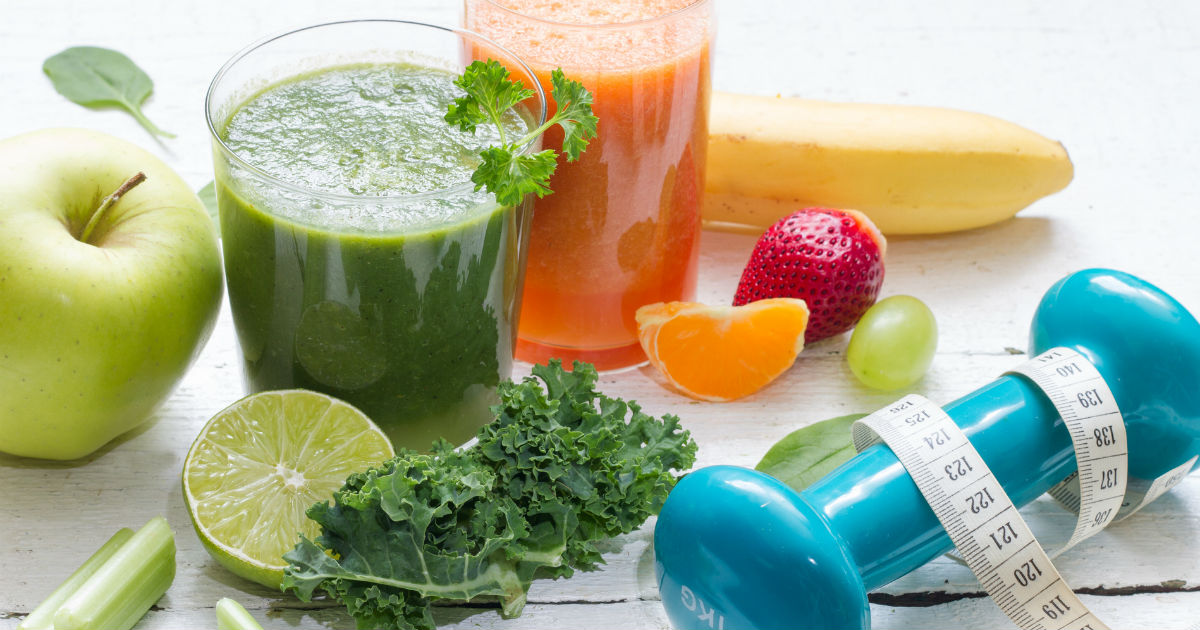
Losing weight and getting healthy are always top resolutions for the New Year. But how people approach these goals can vary. At this time of year, the dietitians and other supportive care experts at Cancer Treatment Centers of America® (CTCA) receive questions about “detox” or cleanse programs. People often suggest they want to try a detox or juice cleanse to lose weight, improve liver function, or improve colon function and reduce constipation.
Most people, though, see a detox program as a quick and easy way lose weight. Unfortunately, there is little or no research suggesting that a detox can result in safe, permanent weight loss. Instead, detox programs may be harmful to your health. Potential disadvantages include:
- Losing muscle mass or weight too quickly
- Inadequate calorie, fiber or protein intake
- Diarrhea that could potentially cause dehydration when using a laxative cleanse
- Nutrient deficiencies if detoxes are done over prolonged periods
There are better ways to improve your diet and achieve or maintain a healthy weight, while supporting the body’s normal elimination processes and digestive function. Consider the following dietary tips:
Eliminate refined sugar, refined carbohydrates, caffeine, alcohol, processed foods and foods with added fats, such as fast food and fried foods.
Eat a plant-based diet with whole foods. Be sure to choose superfoods, which contain significant amounts of antioxidants, polyphenols, vitamins and minerals. These include cruciferous vegetables (broccoli, cauliflower, kale and cabbage), berries (blueberries, raspberries, blackberries and pomegranates) and leafy green veggies (spinach, Swiss chard, arugula, and green or red leaf lettuce). We recommend organic fruits and vegetables.
Opt for lean meats such as chicken breasts, turkey breasts and fish for protein. We also recommend organic for animal products.
Aim for 25-35 grams of fiber a day. Fiber helps bind and eliminate toxins in the intestines through bowel movements. Appropriate sources of fiber include fruits, vegetables, whole grains, beans, legumes, nuts and seeds.
A long-term commitment to this type of diet promotes lifelong health, but it can be used for a short-term cleanse. To do so, focus your diet on the foods listed above for a week or two. You also can support the body’s natural detoxification functions by:
Taking supplements. Sulforaphanes, B vitamins and magnesium may help detoxification. The liver detoxifies substances from both outside and inside the body to help eliminate toxins, excess hormones and other substances. Check with your doctor before taking any new supplements.
Drinking plenty of water to stay well hydrated. The kidneys help eliminate many substances from the body.
Eating more high-fiber foods for constipation. Some people may also benefit from flaxseed, the laxative psyllium or other fiber supplements to help with bowel movements.
Increasing perspiration through exercise or appropriate sauna use. The skin also is an important organ of elimination.
Always speak with your doctor or other clinicians, such as a dietitian, before making any changes to your diet or adding any supplements. Your doctor can help tailor a plan to your specific goals for a detox or juice cleanse.
Learn more about Mediterranean diets.
